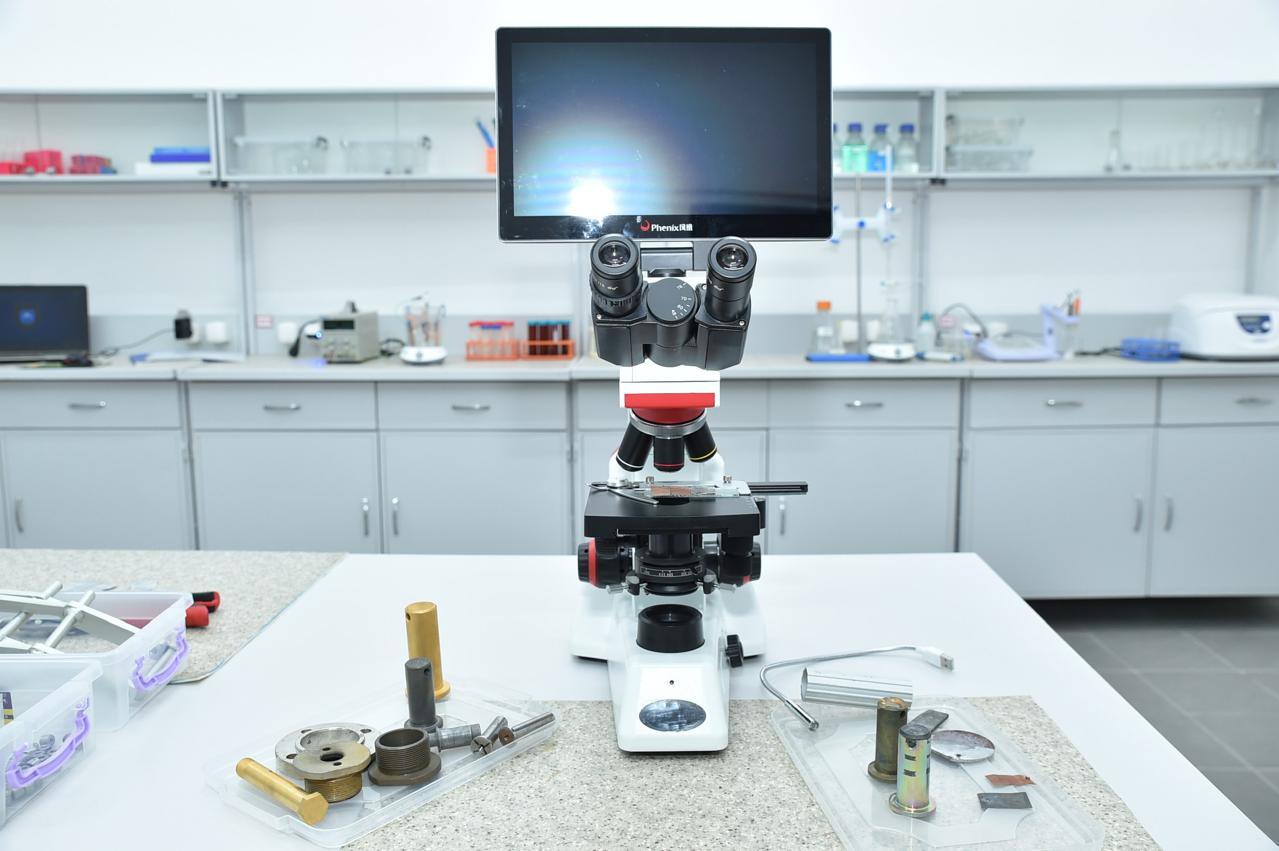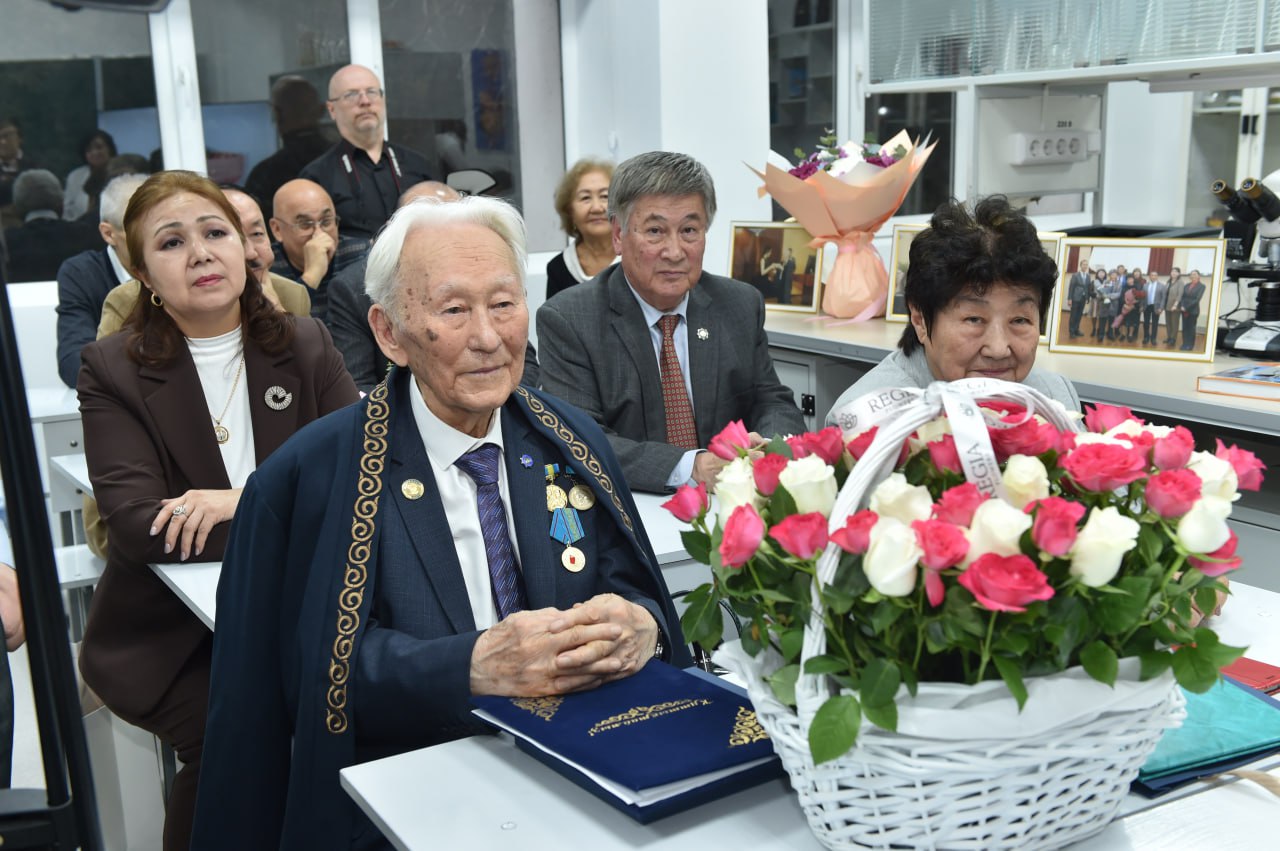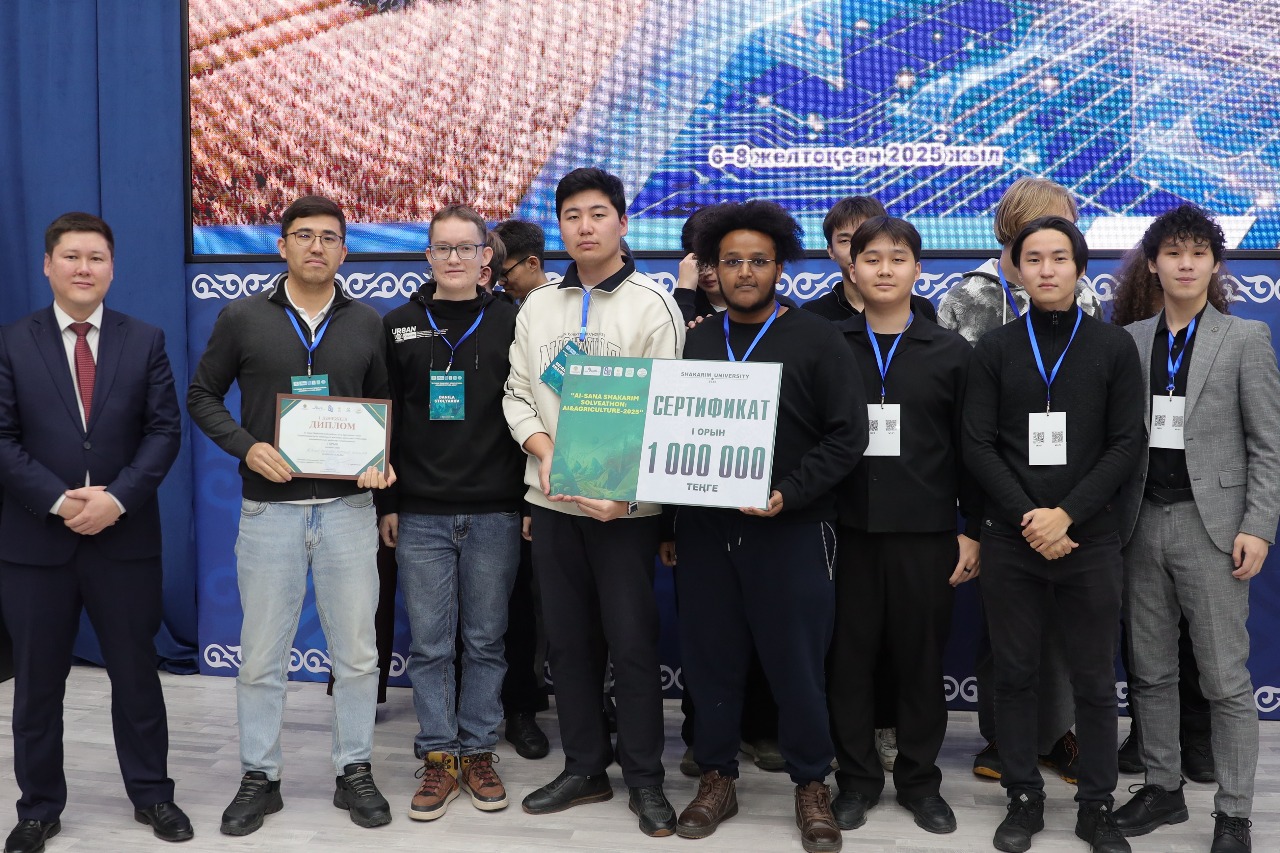KazNU scientists are implementing more than 400 projects worth 36 billion tenge

Today, KazNU scientists are implementing more than 400 projects worth 36 billion tenge. University researchers are developing innovative projects in promising industries, in particular in the fields of chemistry and chemical technology, nanotechnology and the development of new materials, biomedicine and neuroscience, food industry and agro-industrial complex, molecular biology and genetics.
Laboratories of Al-Farabi Kazakh National University are becoming key platforms for the development of high-tech solutions. One of the outstanding projects of KazNU chemical scientists is the technology of growing artificial crystals based on lithium triborate. These materials are of high value in advanced industries such as optics and electronics, their cost reaches 10000 US dollars per sample weighing up to 500 grams. KazNU is one of the few global centers with such technologies.
In addition, scientists have developed and patented a technology for producing luminescent materials with minimal content of rare-earth elements. These materials are used in the production of photovoltaic cells and significantly reduce the cost of the final product.
Instead of lithium-ion batteries, the university's researchers propose an alternative in the form of sodium-ion and magnesium-ion batteries. Such innovations could make energy more affordable and environmentally friendly.
KazNU actively collaborates with domestic industrial enterprises, including KazElectroPrivod, Karasay Machine-Building Plant, and Kirovets Plant. University specialists have developed electrochemical technologies for creating corrosion-resistant, decorative, wear-resistant, and heat-resistant coatings. These materials are produced at the new scientific and production center of KazNU in compliance with international quality standards.
In collaboration with international companies such as Lanxess (Germany), Sibur (Russia), and Synthos (Poland), KazNU scientists have developed new catalysts for the hydrogenation of butadiene-nitrile rubber. This has enabled the production of more flexible and softer rubber, which is in demand across various industries.
In the oil industry, the university, in collaboration with KazTransOil JSC, has developed methods to improve the rheological properties of oil and its de-emulsification. These technologies have already been successfully tested at the "Kuatamlonmunay" enterprise.
Equally impressive are KazNU's developments in the field of polymer materials. University scientists have created polymer composites that are stronger than natural stone. These materials are used in construction and industry.
At the National Nanotechnology Laboratory of KazNU, active research is underway on the development and production of unique carbon nanomaterials, such as fullerenes, graphene, and graphene oxide. These materials possess incredible physicochemical properties and open up vast prospects for the creation of ultra-sensitive sensors, improvements in coating characteristics, anti-friction additives, and are used in pyrotechnic materials.
One of the significant achievements of the laboratory is the development of a non-mechanical technology for planar nanostructuring. This technology allows for the creation of nanostructures on material surfaces with remarkable precision. This approach is already being used to form real and rainbow holograms on metals. These types of holographic protective elements, created using advanced nanotechnologies, will become a powerful weapon in the fight against counterfeiting. They will effectively protect banknotes, precious metal ingots, and other valuable goods from counterfeiters.
Research is also ongoing in the laboratories on the synthesis and application of fullerenes and their derivatives. Fullerenes have anti-corrosion and antioxidant properties, making them useful for protecting metals from the harmful effects of the environment.
Based at Al-Farabi Kazakh National University, the first Brain Institute in Kazakhstan has been established — a unique platform for the development of neuroscience at the intersection of biology, psychology, mathematics, and medicine. The institute focuses on five areas: cognitive, computational, and behavioral neuroscience, neurolinguistics, as well as cellular and molecular neuroscience. Its goal is to create a modern, world-class research base for the study of the brain and consciousness.
In addition, KazNU is successfully developing innovative biomedical solutions. These include biologically active additives made from plant materials of Kazakhstan, hydrogel masks and bandages for wound and burn treatment, as well as antibacterial coatings for surgical sutures and implants. These coatings are more effective and cost-efficient than their foreign counterparts.
Scientists at Al-Farabi Kazakh National University have developed unique products for health and the food industry. The functional yogurt and curd paste "Arğymak," created from mare's and goat's milk with probiotics in microcapsules, have become a real breakthrough. This technology ensures the delivery of beneficial bacteria directly to the large intestine, improving digestion and strengthening immunity. These products have received patents and certificates from the Ministry of Health of the Republic of Kazakhstan.
In addition, scientists at KazNU have achieved significant success in the food industry by developing palladium and platinum catalysts for the hydrogenation of vegetable oils. Tests at the "Maslo-Del" plant have shown that these catalysts allow the production of oils with a low content of trans-isomers.
At Al-Farabi Kazakh National University, special attention is given to the development of advanced technologies in agriculture. Researchers are conducting studies on the cultivation of perennial wheat. This variety has the potential to increase yields, protect ecosystems, and preserve soil fertility. The researchers are also developing a feed additive based on microorganisms. This innovative product enhances the nutritional value of animal feed, improving livestock productivity.
In addition, KazNU has developed complex fertilizers based on low-quality brown coal and a microbial consortium. These fertilizers help restore soil fertility and increase crop yields, contributing to environmental safety and the sustainable development of the agro-industrial complex.
University scientists have developed an antibacterial agent based on recombinant endolysins to combat pathogenic bacteria of the Aeromonas genus, which cause massive fish kills in aquaculture. This agent is effective against antibiotic-resistant pathogens and does not pose a risk of bacterial resistance development. It has selective action without harming beneficial microbiota and accelerates the healing of fish with bacterial infections.
The development is targeted at 180 fish farming enterprises in Kazakhstan, which have increased fish production ninefold over the past 7 years – from 800 tons to 7,400 tons. With the introduction of this product, Kazakhstan's aquaculture industry will be able to minimize losses and increase productivity.
All of these scientific achievements not only strengthen KazNU's position on the global scientific stage but also open opportunities for the commercialization of technologies, making the university one of the leading centers of innovation.
Press-service of Al-Farabi Kazakh National University
Other news


